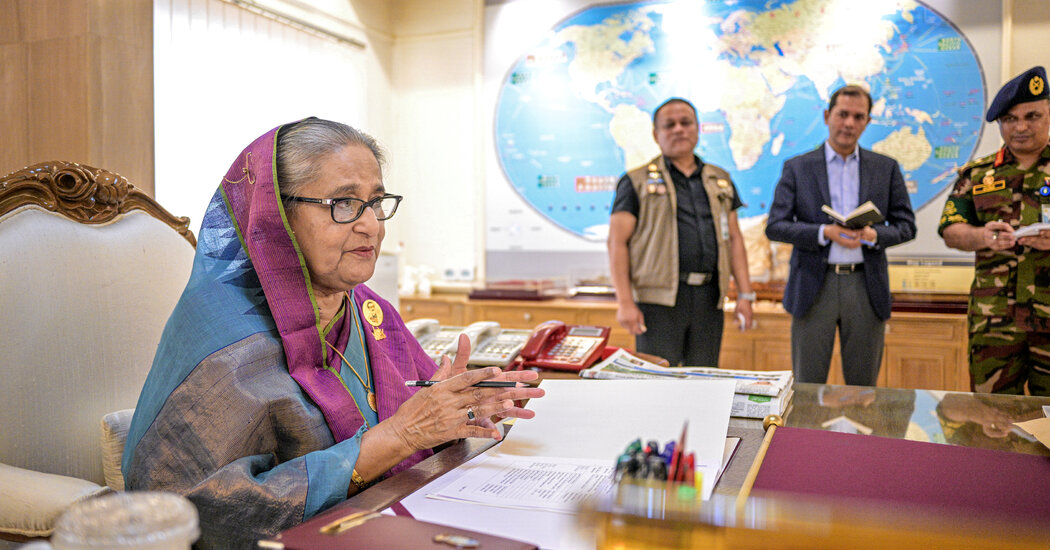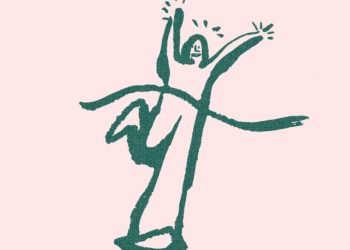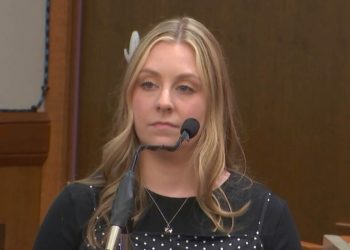A special court in Bangladesh on Sunday issued an arrest warrant for the ousted leader Sheikh Hasina, as prosecutors sought to hold her accountable for the deaths of more than a thousand protesters in the final months of her authoritarian rule.
The International Crimes Tribunal, which Ms. Hasina set up in 2010 to look into war crimes of decades past, charged Ms. Hasina, the former prime minister, and several of her top lieutenants with a long list of roles in the mass killings, including incitement, facilitation and conspiracy.
While the toppled leader has faced arrest warrants in other cases, these are the gravest of charges against her so far. The tribunal’s chief prosecutor, Mohammad Tajul Islam, accused Ms. Hasina of unleashing systematic violence against peaceful protesters last July before she fled the country and sought refuge in India, where she remains.
While Ms. Hasina’s years of crushing dissent, which culminated with last summer’s deadly crackdown, are well-documented, the trial comes at a particularly fraught political moment in Bangladesh.
The interim administration that replaced her is accused by opposition parties of delaying elections for her replacement. Muhammad Yunus, the 84-year-old Nobel Laureate who is leading the interim government, is facing pressure from opposition parties to hold the vote by December. He has pushed for more months beyond that, saying the extra time is needed to reform election procedures and deliver a fairer vote.
The court’s proceedings were televised live for the first time in the country’s history. All of the accused were absent.
Mr. Islam, the chief prosecutor, said Ms. Hasina had incited the violence by giving a speech that branded the student-led protesters as traitors. Then her security officials, as well as vigilantes of her ruling party, the Awami League, had unleashed “widespread and systematic attacks on innocent and unarmed student protesters,” he said.
The Awami League, which was recently banned in Bangladesh, called the tribunal’s decision “a dark day in Bangladesh’s history,” declaring it “a mockery of justice in a kangaroo court set up to serve their political agenda.”
Early in her time as prime minister, Ms. Hasina, the daughter of the country’s founding leader, was hailed as a reformer who was delivering on promises of improved democracy and economic prosperity. But she became increasingly autocratic, jailing her political opponents en masse and overseeing a large campaign of enforced disappearances. The protests last summer began over a small issue of job quotas, but grew into a challenge to her authoritarian rule as she responded with a heavy hand.
A United Nations fact-finding team found that her government had killed around 1,400 people in the crackdown on protesters in July and early August last year. The mission, in its report released in February, said they had “reasonable grounds to believe that these violations were carried out with the knowledge, coordination and direction of the political leadership and senior security sector officials.”
But her case is being tried in an environment charged with political vengeance, under an unelected caretaker government with a limited mandate. The tribunal where the case is being tried has long faced accusations of political bias and lack of due process.
The tribunal was set up over a decade ago by Ms. Hasina to address crimes against humanity committed during the 1971 Liberation War, when Bangladesh became independent from Pakistan after a bloody war. But Ms. Hasina was accused of using it to target many of her opponents. When half a dozen leaders of the Islamist party, Jamaat-e-Islami, were hanged, the United Nations had said the trials that they had been given violated their rights to due process and fair trial. Some who received lengthy sentences during her time in power are now getting relief from higher courts.
The United Nations has expressed concern that the tribunal’s reforms have not gone far enough to ensure justice, and that its prosecutors face “pressure to move complex cases forward quickly to respond to public demands for justice.” Human Rights Watch has urged the Bangladesh government to protect the internationally recognized right to due process for those accused by the tribunal.
Shahdeen Malik, a prominent constitutional lawyer in Bangladesh, said the immediate challenge in ensuring a fair trial would be that Ms. Hasina is unlikely to surrender herself or return to Bangladesh.
In criminal matters, Bangladeshi law does not give an absconding person the right to defend themselves through a lawyer, although exceptions have been made. India has ignored the interim government’s repeated calls to extradite Ms. Hasina.
The bigger test of fairness would be how much time and care is allowed for the process.
“Usually these trials would have scores of witnesses, and normally it takes a minimum of three to five years,” Mr. Malik said.
Mujib Mashal is the South Asia bureau chief for The Times, helping to lead coverage of India and the diverse region around it, including Bangladesh, Sri Lanka, Nepal and Bhutan.
The post Bangladesh’s Ousted Leader Faces New Arrest Warrant in Killing of Protesters appeared first on New York Times.




